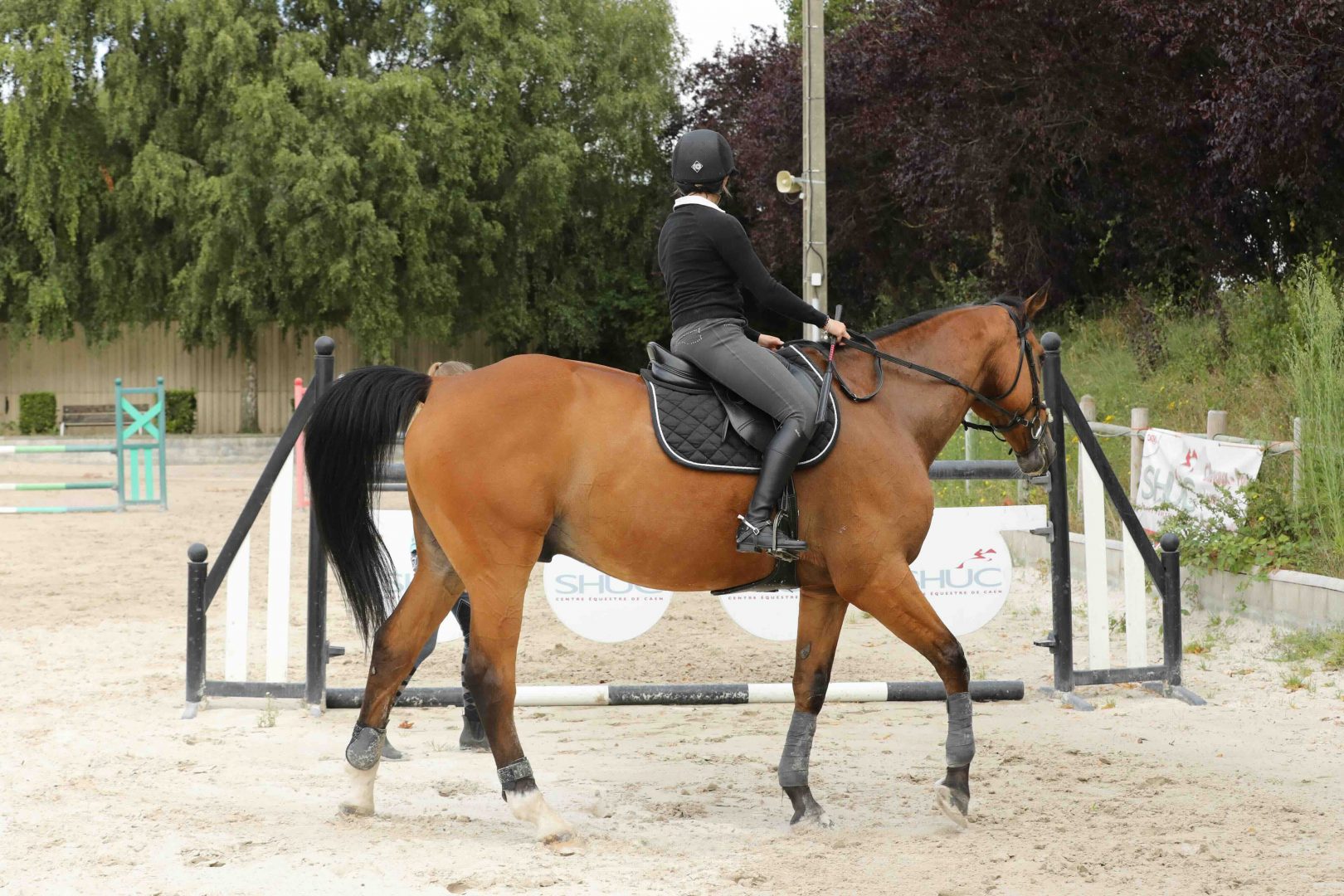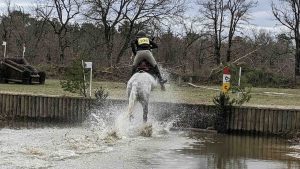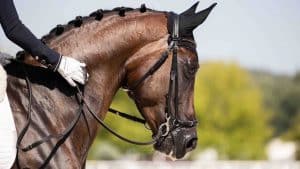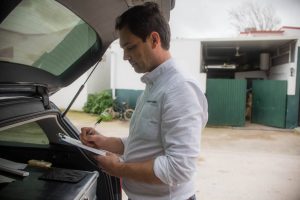A study program dedicated to professionals working in equine therapeutic fields and proposed by the American University in the United Arab Emirates, Dubaï.
This course aims to acquire new effective therapeutic tools, meet other practitioners as you and integrate skills in great demand in your market.
A focus on the horse longevity career
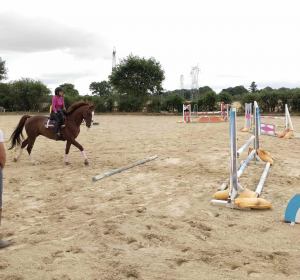
A good understanding of horse biomechanic is essential to ensure health, well-being, performance and longevity of the horse's career.
Sport horses are frequently affected by locomotion pathologies (tendonitis, desmitis, fracture, osteoarthritis…), good knowledge of these disorders and their clinical signs is essential in the management of the horse.
The equine integrative medicine & health management program includes multiple courses about equine veterinary medicine :
Equine Anatomy, Physiology and Pathology
This comprehensive course delves into equine anatomy, physiology, and pathology, providing students with essential knowledge for successful equine therapy practice.
Understanding equine anatomy is vital for effective treatment, as it ensures credibility and specificity in therapy applications. The program covers key physiological systems such as integumentary, respiratory, digestive, cardiovascular, urinary, and reproductive systems, essential for practitioners at an appropriate level of detail.
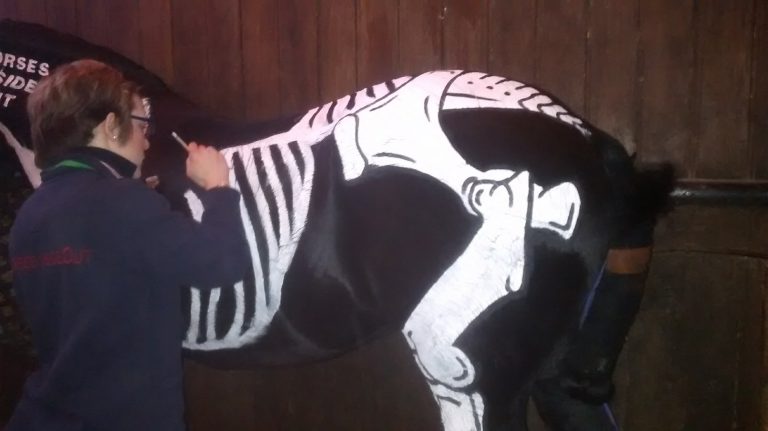
Equine Health & Nutrition Management
For optimal horse nutrition, it's essential to understand the six key nutrient categories: carbohydrates, protein, fat, vitamins, minerals, and water. Feed companies typically balance the first five, but water is equally critical. Adequate hydration, especially in hot weather or during activity, is vital to prevent issues like dehydration and colic.
Chinese Medicine and Acupuncture for horses
This comprehensive course delves into Traditional Chinese Medicine (TCM), covering fundamental principles applicable to various TCM practices like acupuncture, acupressure, and dry needling. Students will explore concepts such as Qi, Yin and Yang, The Five Elements, and The Vital Substances, gaining practical skills to apply these principles in equine therapy.
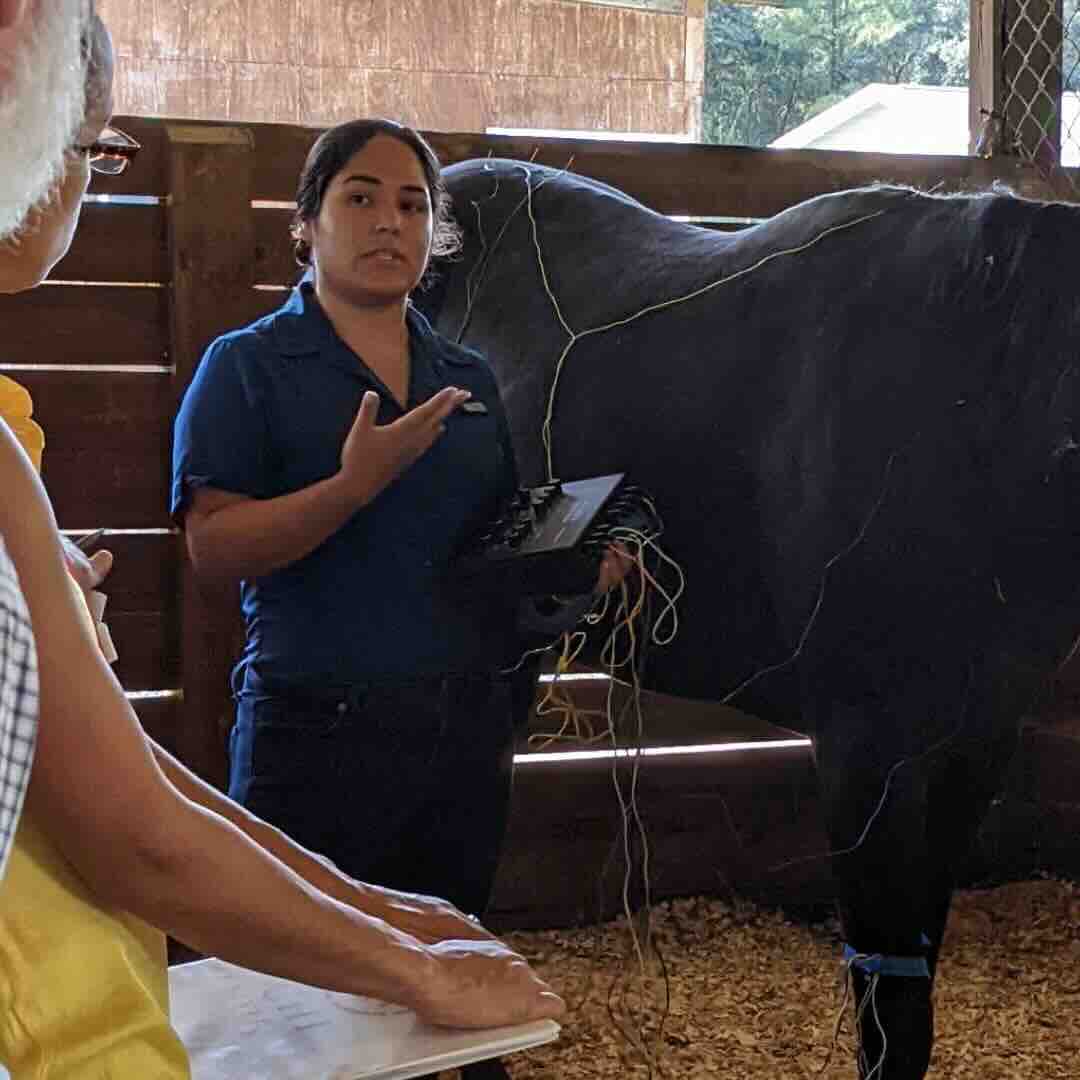
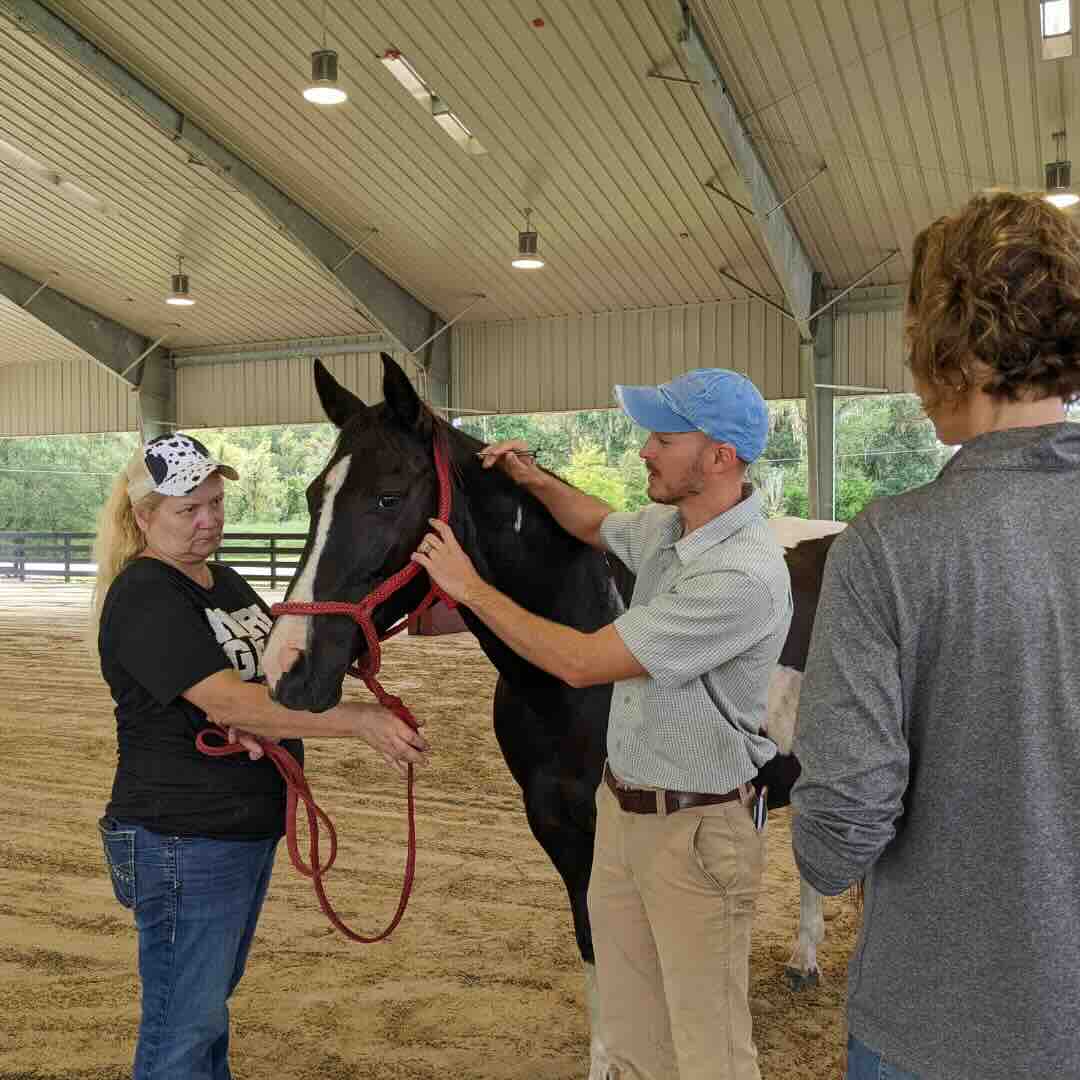
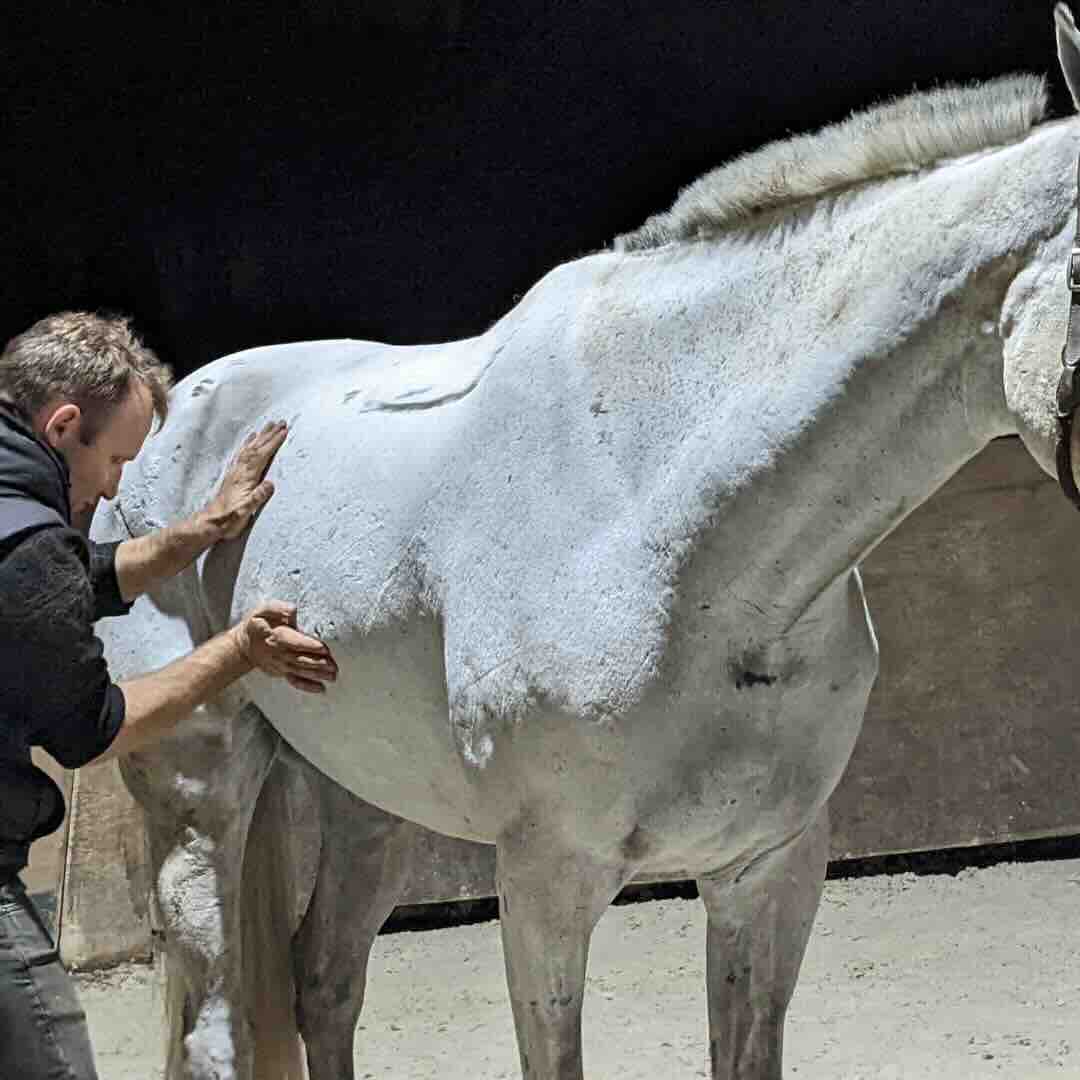
Horse Cupping Therapy
Cupping therapy, originating from Traditional Eastern Medicine, has gained popularity as a complementary treatment for neuromusculoskeletal issues, notably seen when Michael Phelps showcased cupping marks during the 2016 Olympics. This practice involves creating negative pressure with cups on the skin, promoting increased blood flow to the treated area, aiding tissue repair.
Biomechanics, Gait Abnormalities & Lameness
Covering topics such as gait abnormalities, lameness, and the interaction of tack and equipment on biomechanics, this program offers a comprehensive understanding of equine locomotion. Participants will learn to observe and interpret movement effectively, developing practical skills to assess a horse's motion and identify potential issues.
This course integrate objective gait analysis technologies use like Tendiboots™ devices.
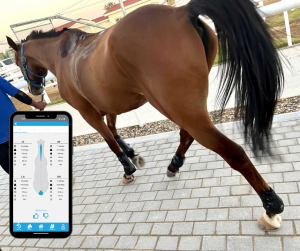
Osteopathy
Through a structured curriculum focusing on classical osteopathy, you'll master techniques like joint and muscle mobilization and articulation, proven to address various equine musculoskeletal issues.
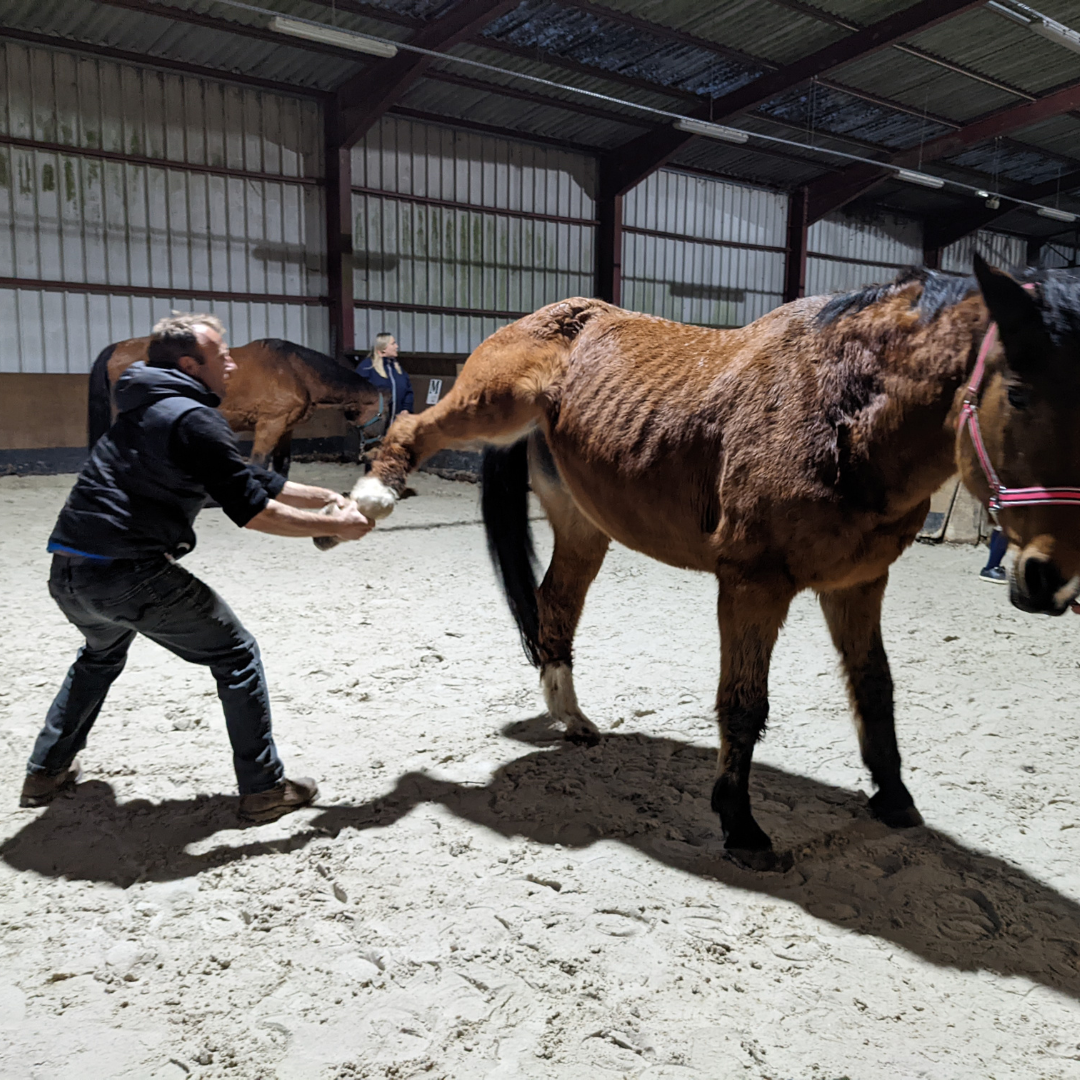
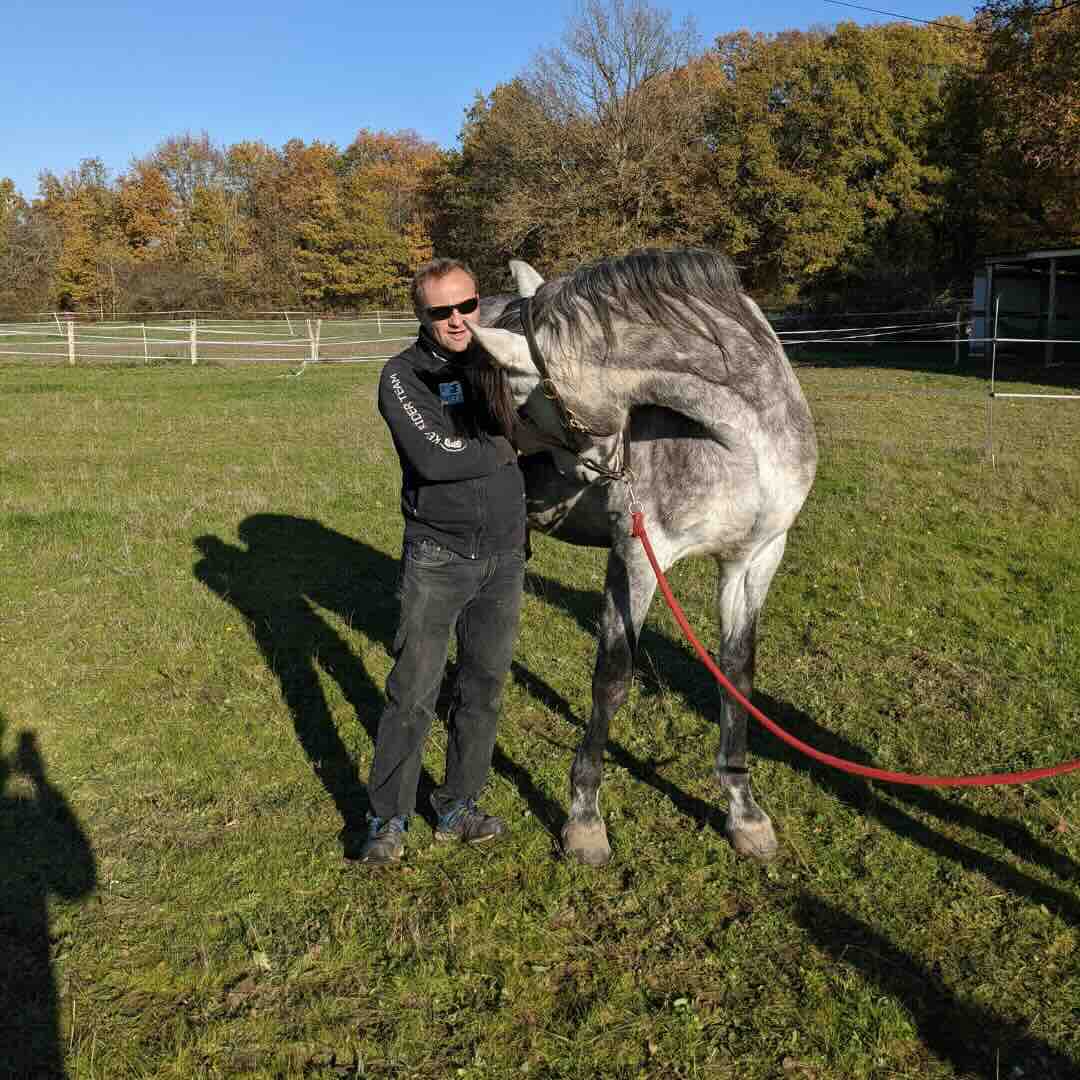
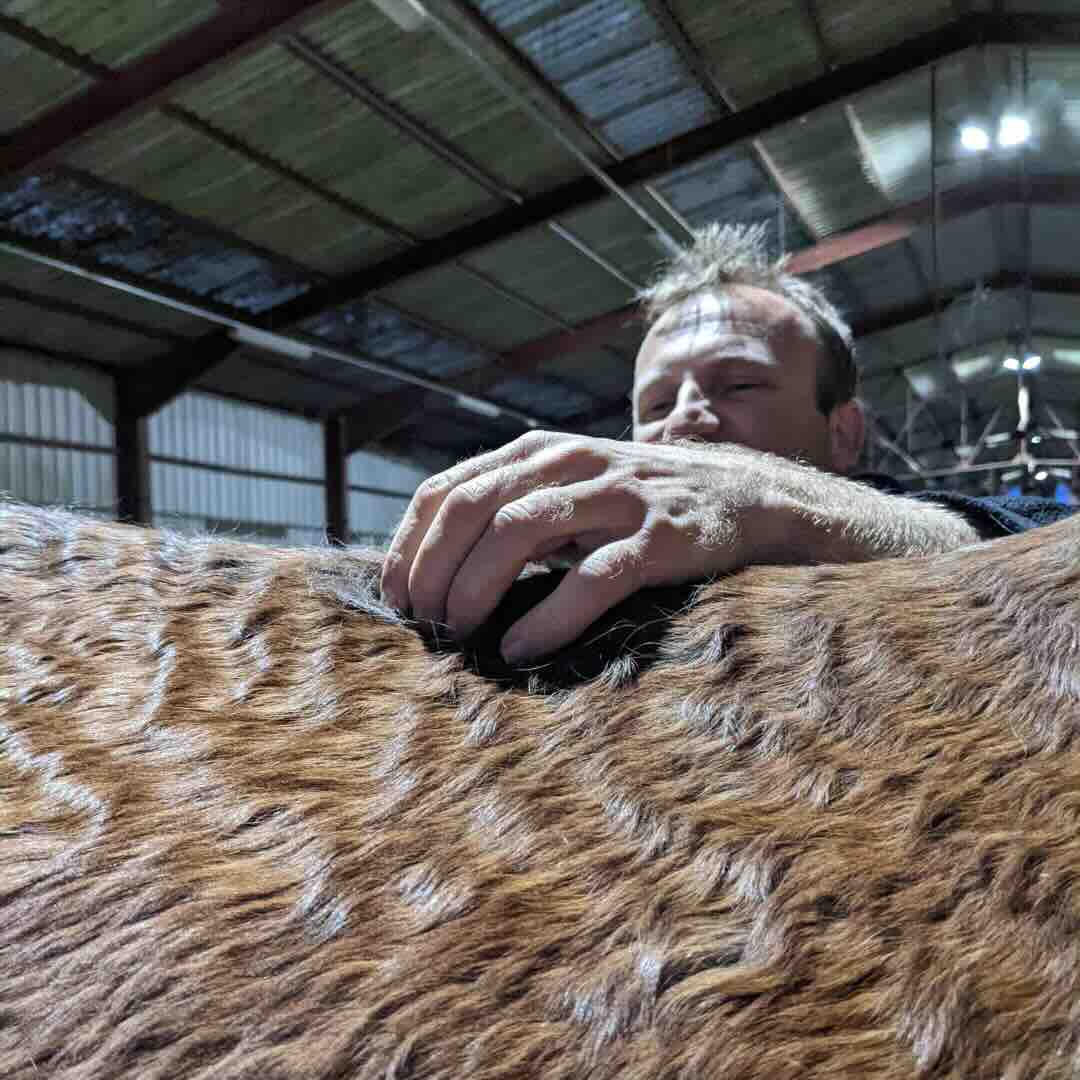
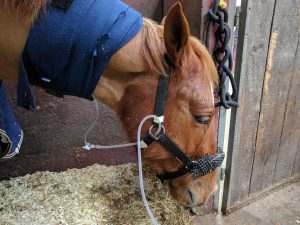
Emergency First Aid
Recognize emergency situations, take immediate action, and administer basic procedures such as vital sign assessment, wound cleaning, and bandaging. Additionally, the course covers common equine injuries, illnesses, and the contents of a comprehensive first aid kit.
Horse Bit, Bridle, Girth and Saddle Assessment
Through qualitative and quantitative analysis, participants gain a comprehensive understanding of bit action, auxiliary tack influence, and rider-horse interaction. Equine anatomy is emphasized, particularly regarding the mouth, head, and neck, to underscore the importance of well-fitted tack in preventing performance limitations and injuries.
Bridle fitting considerations are explored in detail, covering browbands, throatlashes, cheeks, and nosebands, ensuring optimal comfort and function.
The course also provides thorough instruction on saddle fit assessment, emphasizing the alignment of saddle tree and panel shape with the horse's topline. Participants learn to recognize signs of poor saddle fit and propose effective solutions. Practical sessions complement classroom learning, enhancing comprehension and application.
Additionally, topics such as rider anatomy, saddle pad selection, girth fitting, and the impact of rider weight on horse health are covered, promoting a holistic approach to equine well-being.
By the course's end, students are equipped with advanced skills in tack analysis, design, and fitting, ensuring optimal comfort and performance for both horse and rider.
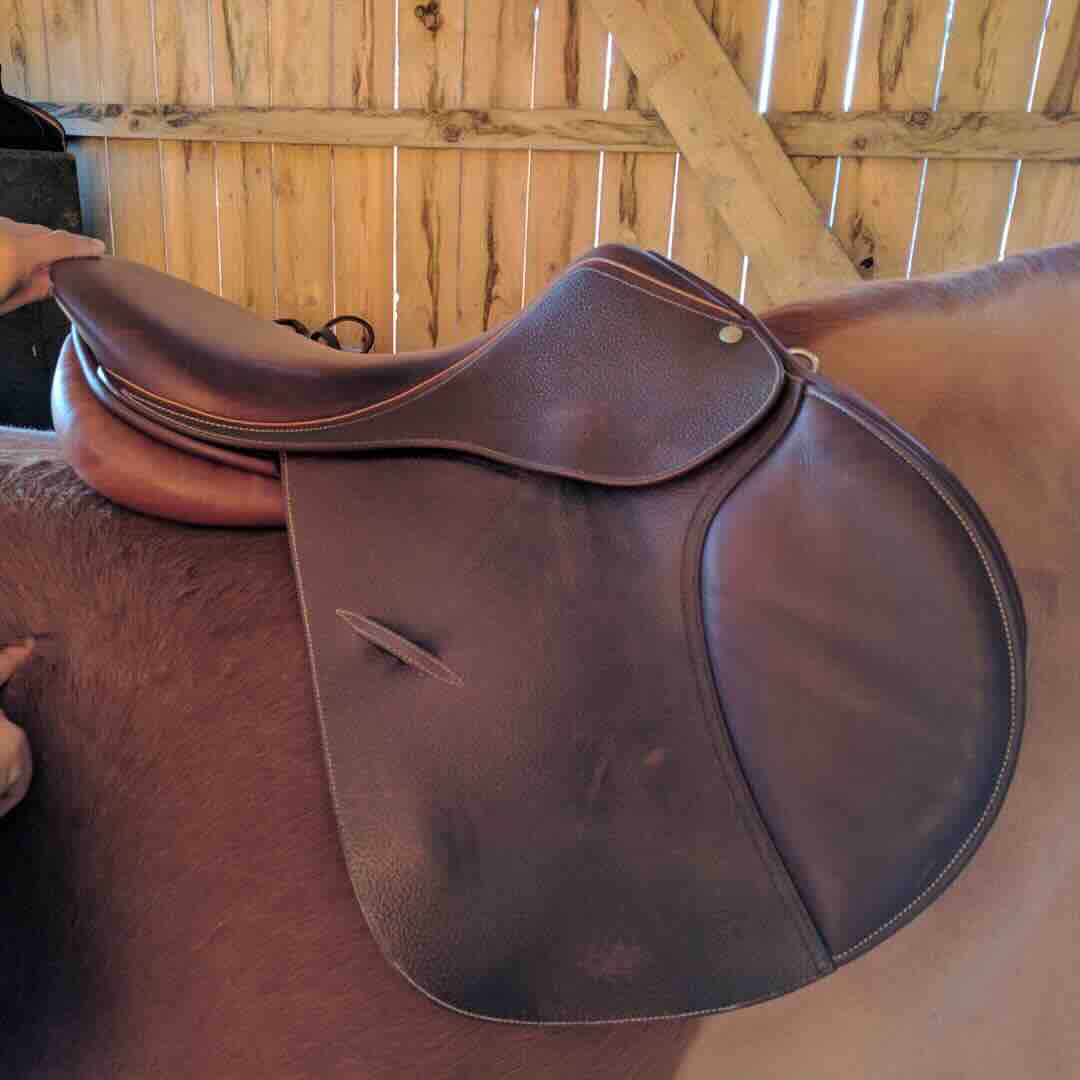
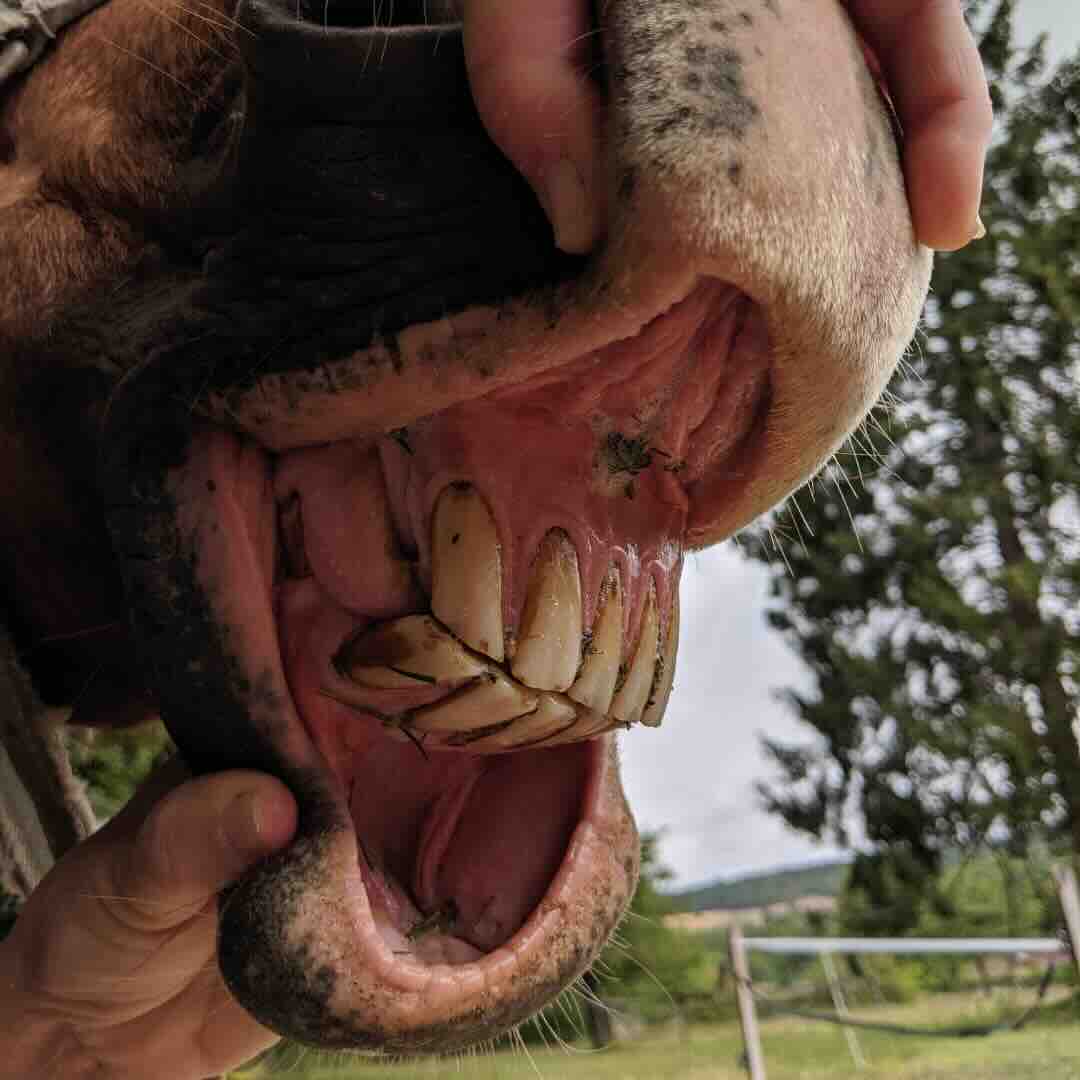
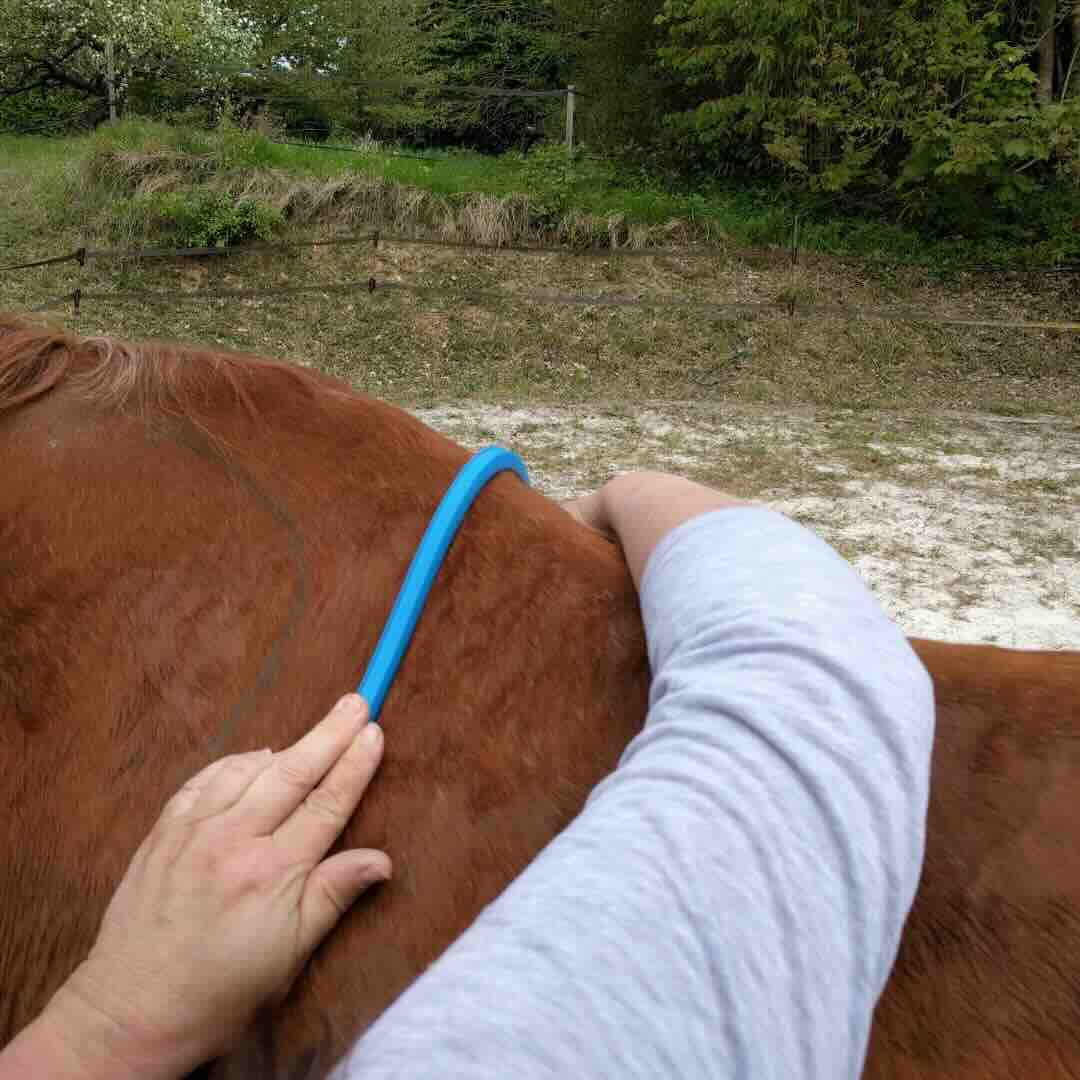
Herbal Medicine, Homeopathy and Aromatherapy
Learn how to harness the innate ability of horses to self-medicate using herbal compounds, essential oils, and more.
Developed based on scientific foundations, this course equips you with the knowledge and skills to support horses in healing themselves physically and emotionally.
From gastric issues to behavioral concerns, discover how Zoopharmacognosy can address a wide range of problems with great success.
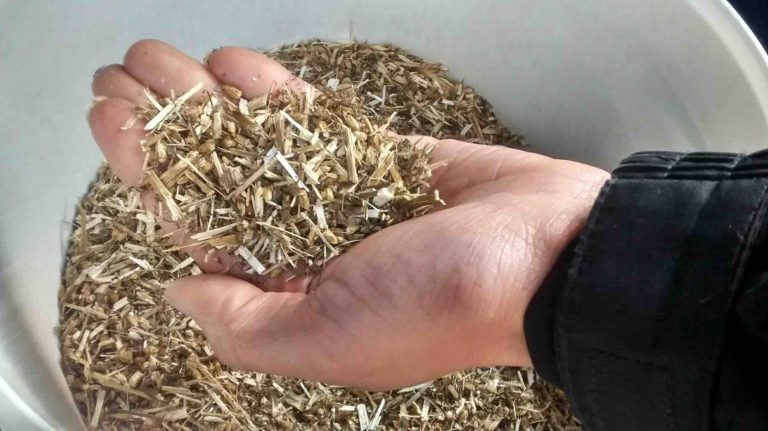
Chiropractic
Identify and treat common pathology related to equine athletics, optimizing horse's performance while minimizing the risk of injury. Delve into basic equine anatomy, neurology, and biomechanics assessment, and master chiropractic manipulation techniques through hands-on practice. Organized at the Dubai race club.
Hydrotherapy for Training and Rehabilitation
Discover the essential training for utilizing equine water treadmills (WTM) effectively and safely. As the equestrian industry increasingly recognizes the benefits of hydrotherapy for training and rehabilitation, it's crucial to have the knowledge and skills to prevent injuries. Our training goes beyond manufacturer guidelines, offering tailored sessions to suit each horse's needs. Learn the fundamentals of water treadmill use, including adjusting water height and speed for optimal results.
Massage, Functional Mobilization and Rehabilitation
Learn how massage techniques and mobilizations reduce muscle tension, promote relaxation, and enhance flexibility. Dive into the physiological effects of massage, understand muscle spasms, and discover the benefits of stretching for equine therapy. Gain hands-on experience in identifying tense areas and applying various massage techniques effectively. Additionally, explore the benefits of sports massage, lymphatic drainage massage, myofascial release, and kinesiology taping in equine rehabilitation.
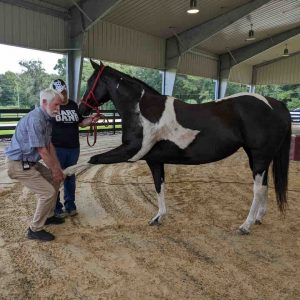
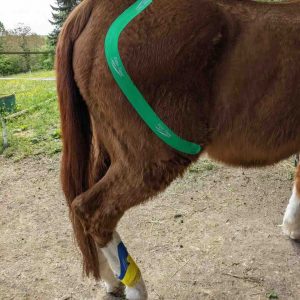
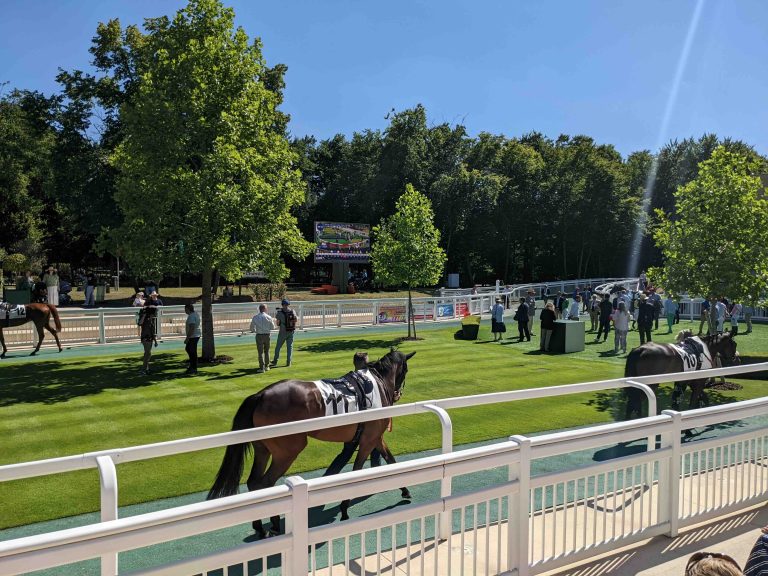
Training Horses and Racehorse Health and Welfare
Offer a comprehensive education on ensuring high welfare standards in the horse racing industry.
Explore 'The Five Freedoms' framework :
- Freedom from hunger and thirst
- Freedom from discomfort
- Freedom from pain, injury or disease
- Freedom to express normal behavior
- Freedom from fear and distress
Find the complete program and all information directly on the American University in the Emirates website : https://auedi.com/en

